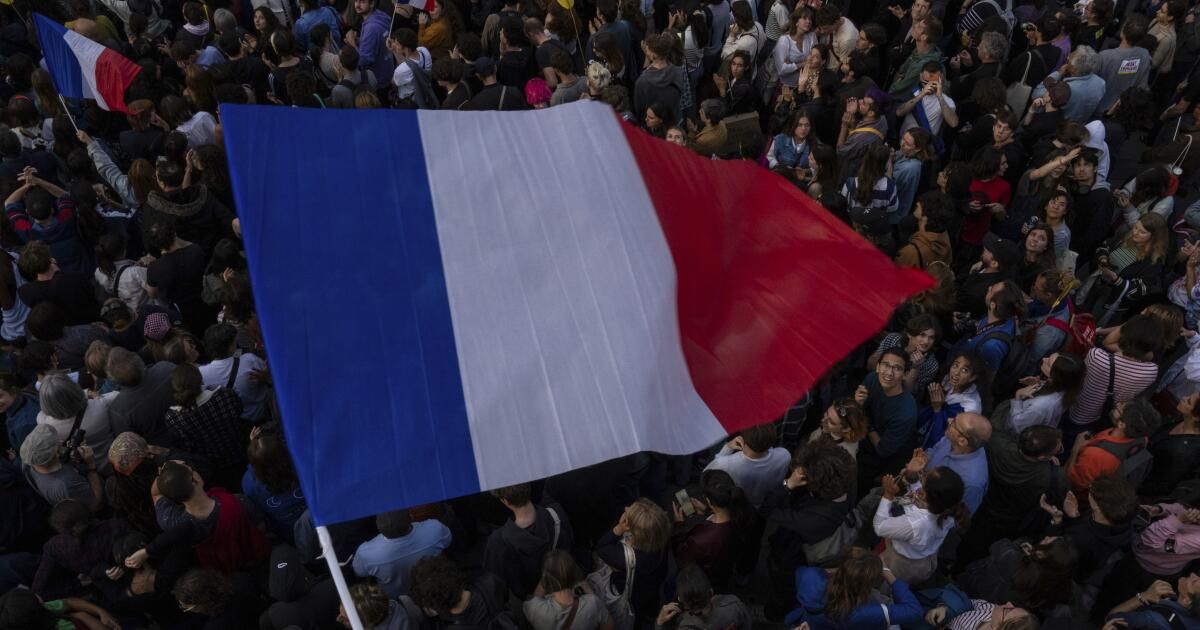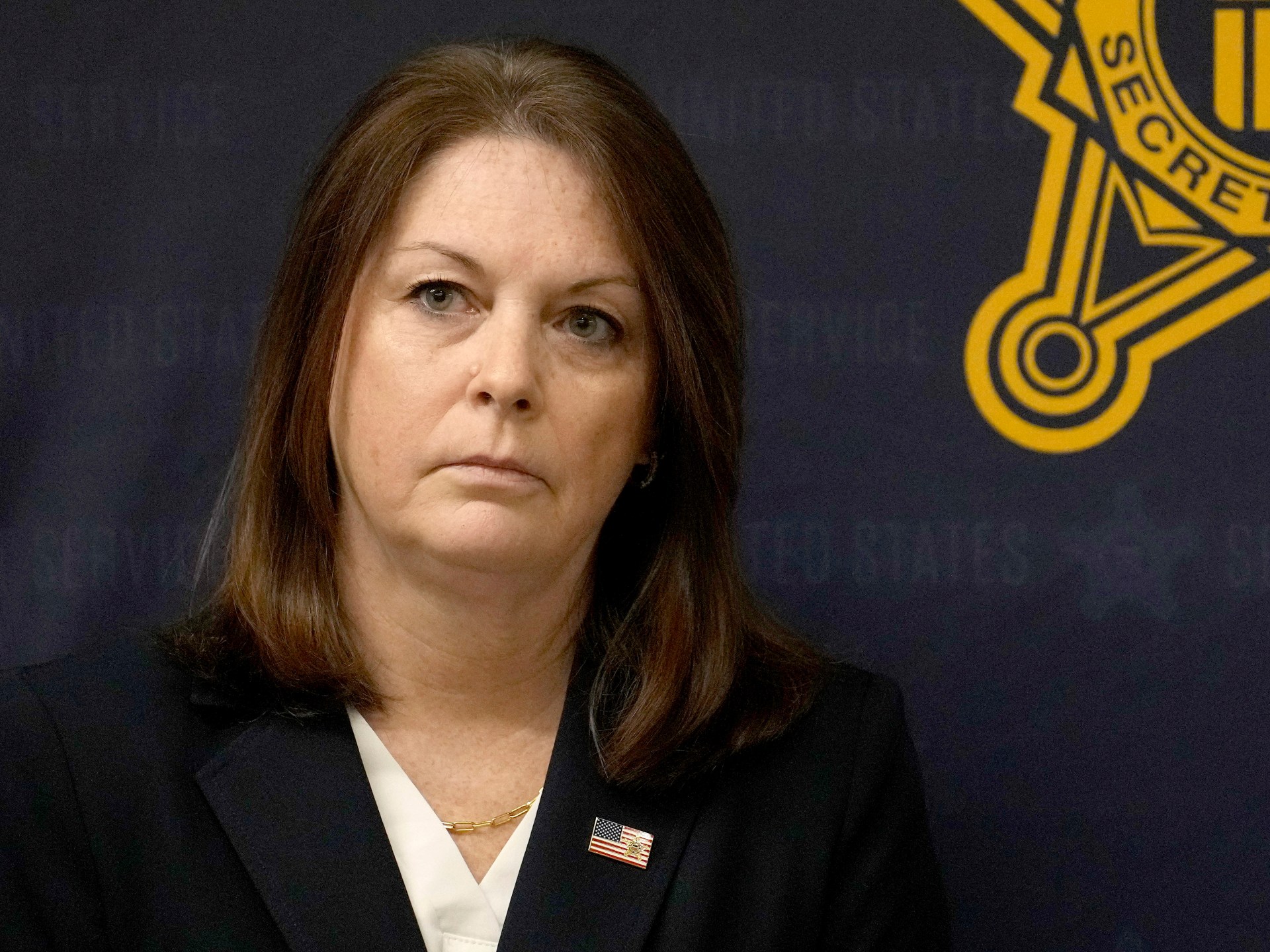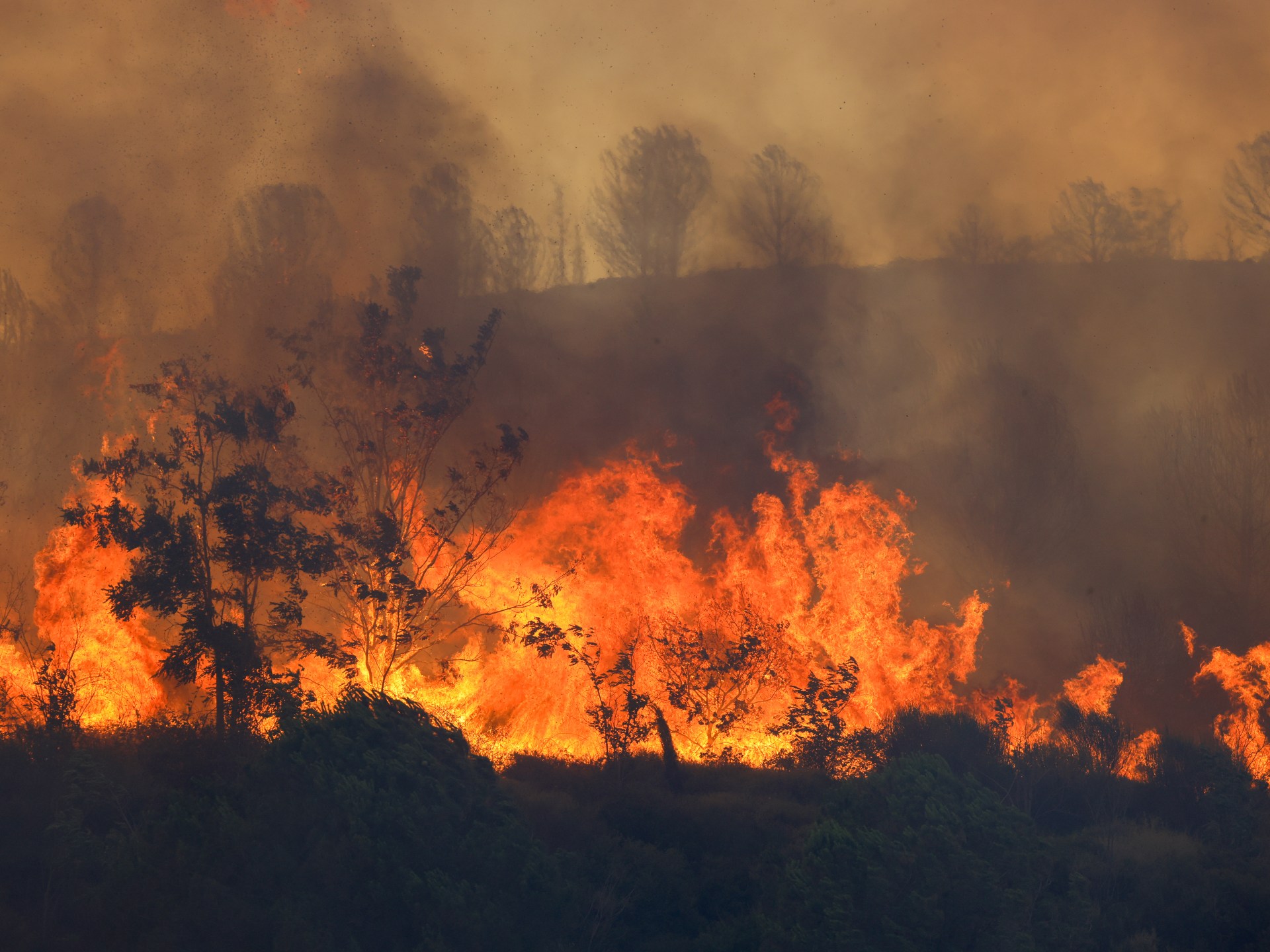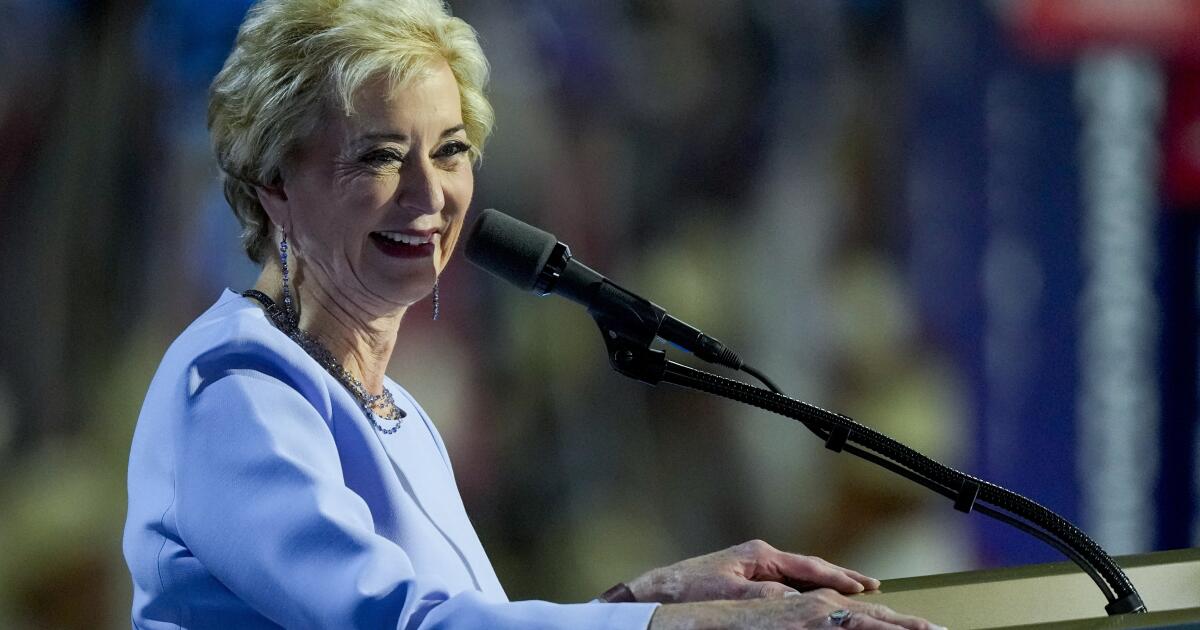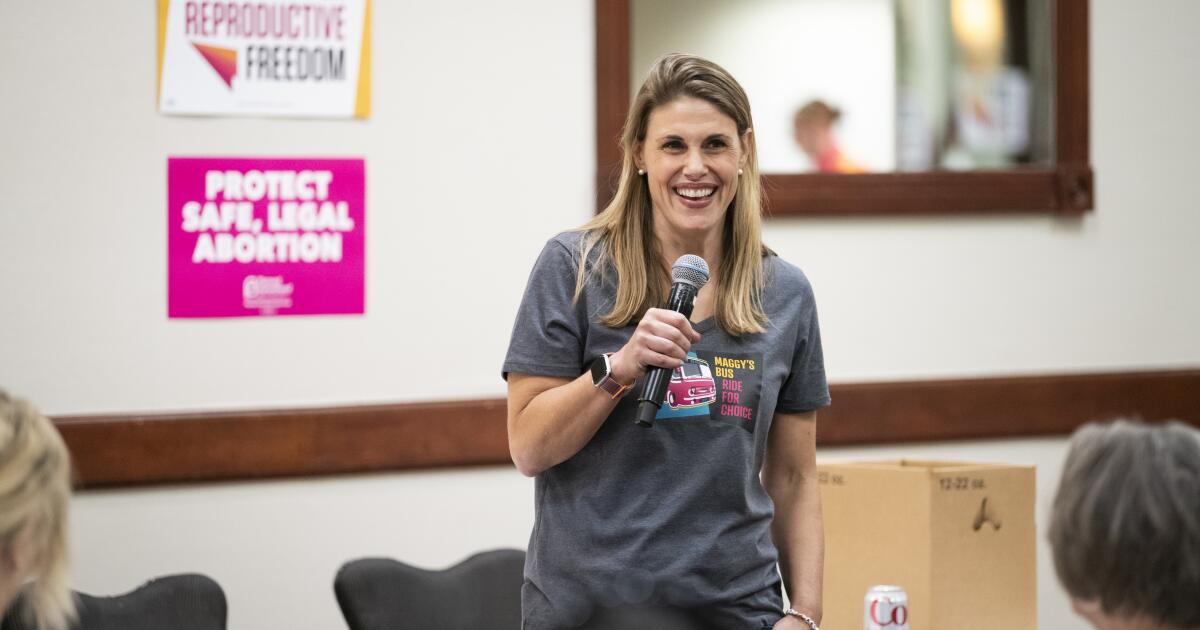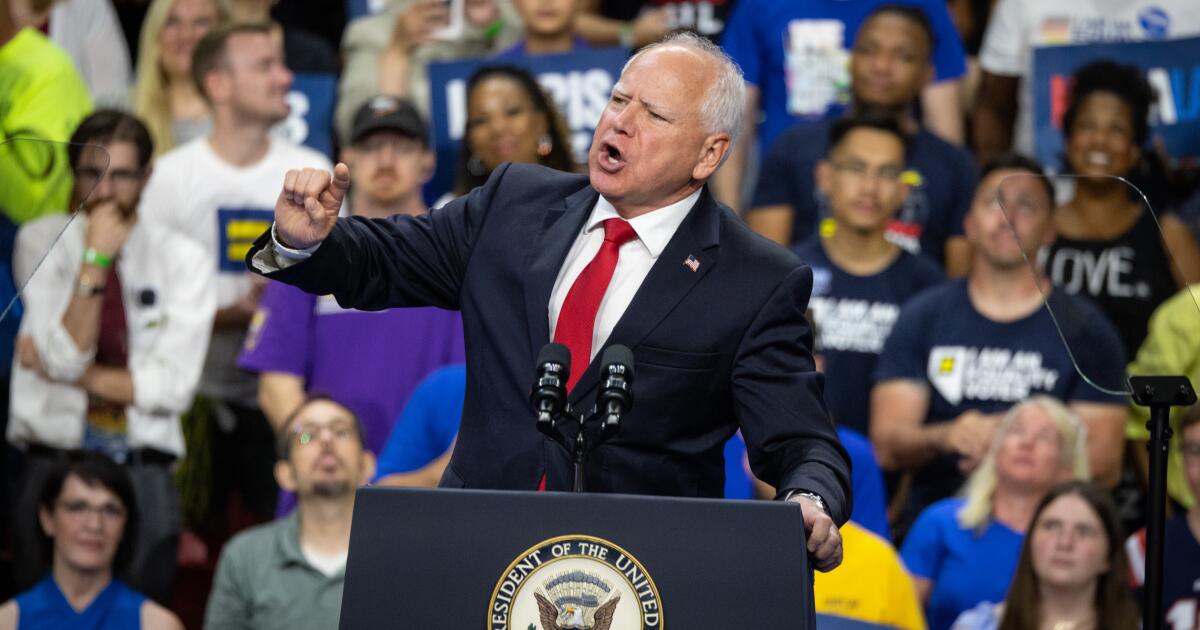For decades, there has been a strong political taboo in France against a far-right party coming to power. Now, just weeks before the start of the Summer Olympics in Paris, the nationalist-populist National Rally party is making its most concerted attempt yet to do so.
In Sunday's second and final round of voting, the anti-immigration, “French First” party is expected to emerge as the largest party in parliament, although the latest projections suggest it may fall short of the absolute majority that would allow it to form a government.
Whether or not the opponents succeed in uniting to thwart their most ambitious goals, the National Rally will likely be in a position to harass and paralyze centrist President Emmanuel Macron, who took office in 2017 and still has three years left in his current term.
“That means France is entering a crisis,” said Gerard Araud, a former French ambassador to the United States, after the far-right party took first place in an initial round of voting on June 30. In an Atlantic Council podcast, Araud called the situation an “absolute disaster” for Macron.
Galvanized by the National Rally's early triumph, other parties, including Macron's centrists, have spent this week working frantically to prevent it from winning an outright majority, an outcome that would force Macron to install its 28-year-old leader, Jordan Bardella, as prime minister.
Even if the far right fails to reach that threshold, it could potentially form a governing coalition or simply use its newfound influence to stymie the agenda of Macron, whose party until now held the largest number of seats.
Here is some background on how France arrived at this chaotic political juncture.
Flags adorned a statue on Paris's Place de la Republique on Wednesday.
(Louise Delmotte/Associated Press)
Who is contesting the vote and what is at stake?
The parties are competing for 577 seats in the National Assembly, the lower and most powerful chamber of parliament. The National Rally hopes to win at least 289 seats, which would allow it to form a government without needing coalition partners.
The three main political blocs in the race are the National Rally; a coalition called the New Popular Front, which includes centre-left and far-left forces, along with environmentalists; and Macron's centrist alliance. They came in first, second and third place respectively in the first round of the June 30 election.
As for the next round, the various complexities of the French electoral system make predictions difficult. As lawmakers are elected by district, the result does not necessarily reflect overall levels of support nationwide for a given party.
Why is this vote being held?
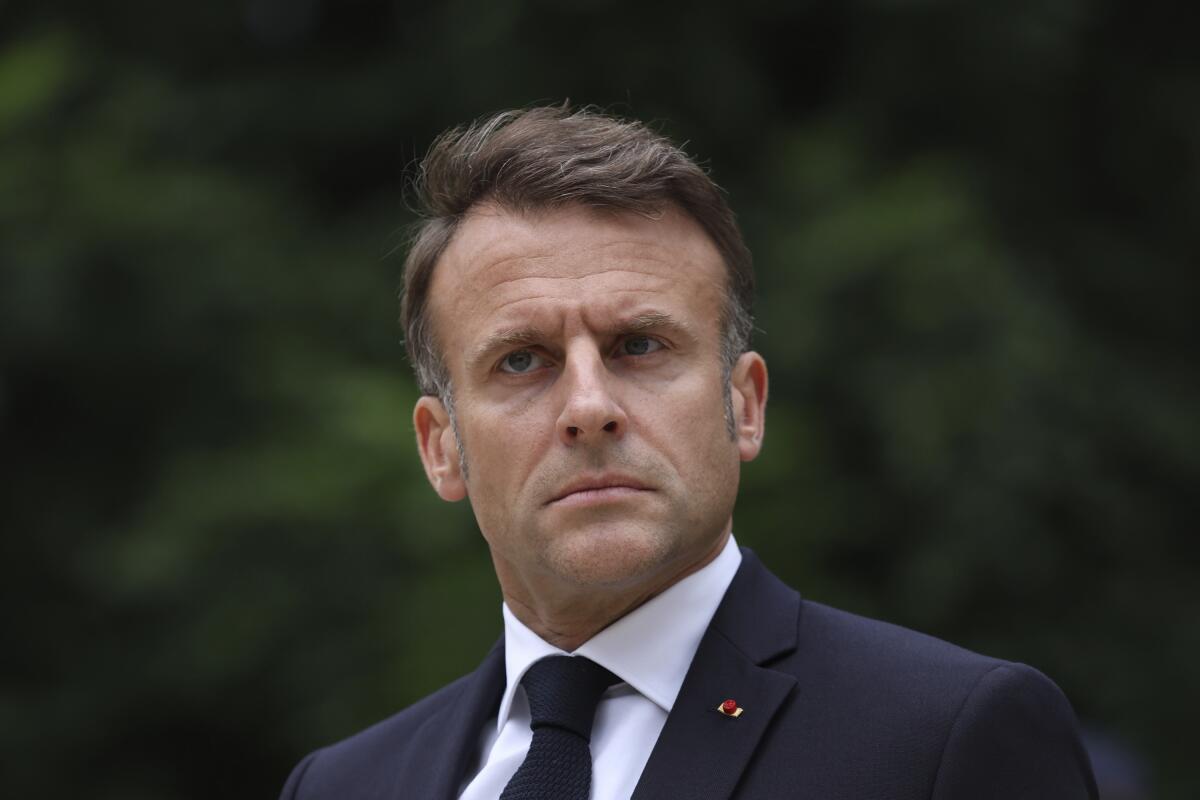
French President Emmanuel Macron called an election, which appears to have been a spectacularly bad bet.
(Aurelien Morissard/Associated Press)
Macron, whose presidential term runs until 2027, did not need to call a parliamentary vote, but three weeks ago, after the National Rally beat his Renaissance party by a 2-to-1 margin in June’s European Parliament election — a harsh but largely symbolic setback — he said he wanted “clarity” about voters’ wishes and called a snap election.
Analysts said Macron appeared to be betting, as he has in the past, that the French electorate would resist being ruled by the National Rally, and that the outcome of the European elections, which do not directly affect national governance, essentially amounted to a protest vote.
The president's decision, taken just hours after the outcome of the EU vote was known, came as a surprise to France. According to French press reports, only a small group of advisers knew about the measure before Macron's announcement. That inner circle did not include his prime minister, Gabriel Attal.
What is the National Rally?
It is a rebranded version of the former National Front, whose founder, Jean-Marie Le Pen, was a notorious racist who sought to trivialize the Holocaust. Marine Le Pen, the founder’s daughter, worked assiduously to detoxify its brand, emphasizing basic issues, distancing herself from some of the party’s more extreme positions and even expelling her father in 2015. With his blessing, Bardella replaced her as party leader in 2022, though she is expected to run for president when Macron’s term expires in 2027.
The French rejection of the far right has deep historical roots, dating back to the collaborationist Vichy regime during World War II, which handed over many of the country's Jews to their deaths at the hands of the Nazis. Many here still regard Vichy as a lasting stain on the national honour.
What positions does the National Rally support?
He promises to reduce immigration, increase police powers and give native French citizens preferential treatment over dual nationals and foreigners, along with other measures that critics say would infringe on civil liberties.
In the past, the party has fiercely rejected the European Union, a position it has since moderated, but it still wants to work from within to weaken the powers of the 27-nation bloc.
Marine Le Pen also has a long history of sympathy for Russian President Vladimir Putin, and the Kremlin has applauded her efforts to break free from what it calls the dominance of Washington and Brussels, the seat of the EU.
Why did people turn against President Macron?
When he won election seven years ago, at 39, Macron was the country’s youngest-ever elected head of state, a proud technocrat who set out to deepen integration with the European Union and make France a country with a more attractive business climate. But he also earned a reputation for arrogance and disdain for the concerns of ordinary voters, such as the cost of living and stagnant incomes, especially in disadvantaged rural areas. His decision to raise the retirement age from 62 to 64 was wildly unpopular and sparked mass protests.
How could a victory of the National Rally affect the war in Ukraine?
On the substantive and the negative. Macron has been a staunch supporter of President Volodymyr Zelensky’s government in Ukraine’s efforts to fight off Russia’s full-scale invasion. The French leader has not ruled out sending French troops to Ukraine to help train its military; the National Rally would oppose that. Bardella has also said he would prevent France from providing Ukraine with long-range missiles that can hit targets inside Russia.
What would a far-right victory in France mean for the United States?
In France, the presidency wields the most influence and authority over foreign affairs and national security, but a far-right prime minister would likely seek to erode that dominance. Much of Macron’s tenure coincided with the presidency of Donald Trump, with whom the French leader attempted to build a workable relationship, although Trump’s successor, President Biden, was a more natural ally. Trump supporters in the country have expressed glee at the prospect of a rise of the far right that would weaken Macron.
How do rivals seek to block the National Rally?
In the past, traditional parties have banded together to form a firewall against the far right, and they are trying to do so again. On the eve of the runoff, opponents of the National Rally have engaged in “tactical voting,” in which candidates in some districts drop out of the race to help boost non-far-right candidates. By midweek, more than 220 leftists and centrists had dropped out of their runoff contests.
The strategy could lead to a “hung parliament”, in which no bloc would have a clear majority, potentially leading to a prolonged period of political instability. New general elections cannot be held for at least a year.
As the race has tightened, opponents have been scouring social media accounts and old photos of National Rally contenders, seeking to diminish their support base or force them out of the race. One candidate dropped out of her local race after a photo emerged of her dressed in a World War II cap like those worn by Nazi officers.

